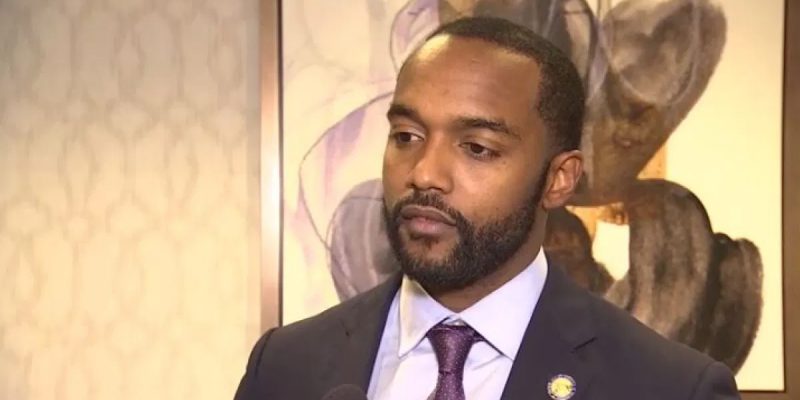Democrat Shreveport Mayor Adrian Perkins better had hope that a scheduling glitch is the only thing that goes wrong with a proposed $206 million in new taxes on city property owners, as tenuous as voter approval of these is.
The four proposals echo three for $186 million each defeated by small margins in 2019. Tuesday’s City Council meeting could have cued these onto the Apr. 24 ballot, but didn’t because of an agenda drafting error that disallowed introduction and final passage together. Because the city faces a hard Jan. 19 deadline to make the municipal election runoff ballot, the Council will have to try again in a special meeting next week.
The categories of items don’t differ much from the previous version. The old covered water and sewerage; public facilities and equipment for parks and recreations, public buildings, and the police and departments; and streets, highways, bridges, and drainage systems. The new are for streets, highways, bridges, drainage systems, and water systems; the police and fire departments; parks and recreation and public transportation; and economic development including but not limited to industrial park and workforce development facilities. The combined millage actually is lower at 10.60 compared to 11.68, but reduced interest rates ate providing more bang for the buck over the 20 years.
This set more strategically matches up items to help with their passage, such as divorcing police and fire infrastructure spending from that of parks and recreation. Last time, the version going to voters jettisoned some economic development items that some observers thought unnecessary if not wasteful. This time, that, and parks and recreation and newly added public transportation, have their own separate items.
Perkins asserted that the specific projects in mind largely reflected priorities in a list behind the last batch, although legally the city doesn’t have to spend on those discrete things if the measures gain approval. That formulation had come from a number of community meetings.
Certainly, this time out the proposals, singly and in whole, have a better chance of passage, beyond the more strategic divvying up of purposes. The date also serves this end, which will feature a much lower voter turnout than with the past proposals tied to statewide office runoff elections, that generally conveys an advantage to pro-tax forces as those who benefit directly from a new haul of taxpayer resources have greater incentive to turn out and vote.
As well, since his ill-fated egg-laid Senate campaign, Perkins has avoided (so far) the bad publicity that dogged him especially in his first year in office. Distrust of him garnered from recent memories of high-profile foibles such as signing up the city to pay far more for less insurance and trying to bill taxpayers for inauguration expenses almost assuredly provided the margin for defeat in 2019.
Advertisement
Weighing against this, however, will be the Wuhan coronavirus pandemic and the economic pressure it has put on some voters personally or their acquaintances that may make then reluctant to give government more money. And distrust of Perkins could rear its head again for some, in that they have chafed against his enthusiastic embrace of stricter pandemic protocols beyond his legal authority.
Also working against the measures is the city’s economic and population decline over the last decade, with Caddo Parish (having four-fifths of its population in Shreveport) seeing an average of less than a half-point increase annually in economic growth, well below the rate of inflation, and at least a six percent drop in population. Enough voters may wonder why a shrinking city wants scarcer tax dollars to build out new infrastructure.
The only sure winners out of the announcement were found in Bossier City. Successful passage of all would jack up Shreveport’s overall property tax rate almost a quarter to 43.35 mills compared to just 23.36 across the Red River. If the stagnation and population loss aren’t enough to invite people to head west to east, passage only would add greater incentive. Even the mere mention of a potential tax increase will induce some Shreveporters to pack up and eventually go.
If the last opportunity indicates anything, a Council majority will send the proposals to voters. Regardless of whether they’ll cooperate in growing Shreveport city government, declining as a viable entity appears more certain for Shreveport.
Advertisement
Advertisement

